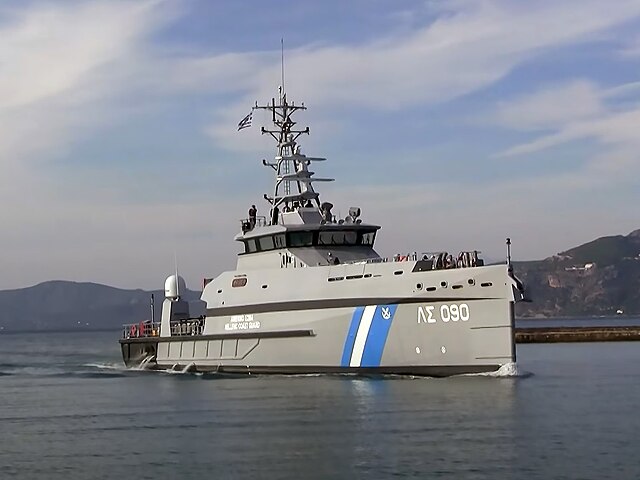In Greece, Boundaries Shape Both Domestic and International Politics

A ship owned by the Hellenic Coast Guard, pictured in 2020.
Jonah Carlson - In the last few weeks, political tensions between Greece and its neighbors in the European Union have flared following the death of nearly 650 migrants in an accident observed by the Hellenic Coast Guard. As the European Union considers pulling back its boundary operations in Greece, Monika Pronczuk examines the potential effects and repercussions of such a move, as well as what it could mean for intra-EU relations.
To understand the growing crisis, one needs to have an understanding of boundaries. Boundaries are lines that divide and distinguish one territory from another for the purposes of demarcating sovereignty and controlling the flow of investment, trade, people, and other items. While Greece has its own territorial boundaries, it is also a member of the Schengen Area, a conglomerate of European Union members that allow for the free movement of people across their state boundaries, without controls or passport checks. Thus, Greece is not just an endpoint, but a gateway to much of Europe. Migrants from countries in the Middle East and North Africa have traversed the Mediterranean Sea to reach either Greece or Italy, and the reactions of these states has proven divisive in European politics. The tragic loss of life in the most recent series of events has led to an EU response. Jonas Grimheden, an official of the European Union, has encouraged the international organization to apply actions that would “bring Greece ‘in line with national, E.U. and international law,’” considering Greece’s latest actions a violation of human rights. This perspective contrasts with the newly reelected New Democracy party in Greece, with Pronczuk asserting that the prime minister, Kyriakos Mitsotakis, is “a leading proponent of a hard-line migration policy.” Such a political battle is just one example of the widespread debate over immigration that has transformed European politics over the last two decades.
To understand one perspective of the debate, one needs to understand non-state actors. Terrorism in Europe since the turn of the 21st century, accompanied by the War on Terror, has encouraged certain political actors to see more stringent boundary controls as a vital security concern. The question of whether stricter controls would discourage terrorism is part of why the debate over immigration is so fierce.
Photo source. Loucozade, CC BY-SA 4.0, via Wikimedia Commons.

